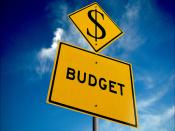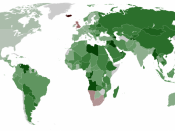Federal Treasurer, Peter Costello, brought down his 10th Budget saying it is framed for the future, the future opportunities of young people, the future care of the aged, the future health services that Australians will need and demand, the security of the nation, and the future growth of the Australian economy which is necessary to realize these goals.
Peter Costello said the economic management of the Australian Government affects the lives of everyone because the lives of our citizen's matter, the decisions the Government may affect their mortgages, their businesses, and whether they can find a job.
He said the Budget was brought down at a time when more Australians are in work than ever before. Our unemployment rate has fallen to a low unmatched for 28 years.
The budget will have a number of effects on a number of different areas of the economy including the economic outlook, tax cuts, welfare to work, business taxes, health, skills and training, families and careers, Australia's security and international engagement.
Nominal GDP has grown very strongly for a number of years. In 2003-04, nominal GDP grew by 7.3 per cent, largely reflecting the impact of housing demand on both real GDP and domestic prices. Strong growth in the terms of trade and the effects of higher oil prices are expected to result in nominal GDP growth of 6 per cent in 2004-05. The approach, adopted in this Budget's economic projections is to assume that products prices return to their long-run average level over the first two years of the projection period. As a result, nominal GDP growth in 2006 07 and 2007 08 is not projected to grow as strongly. Projected real GDP growth is unchanged by the technical assumption for product prices.
Employment has continued to grow rapidly through 2004-05, with...


